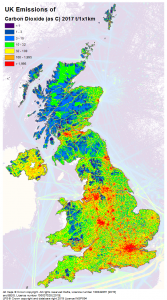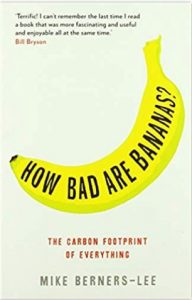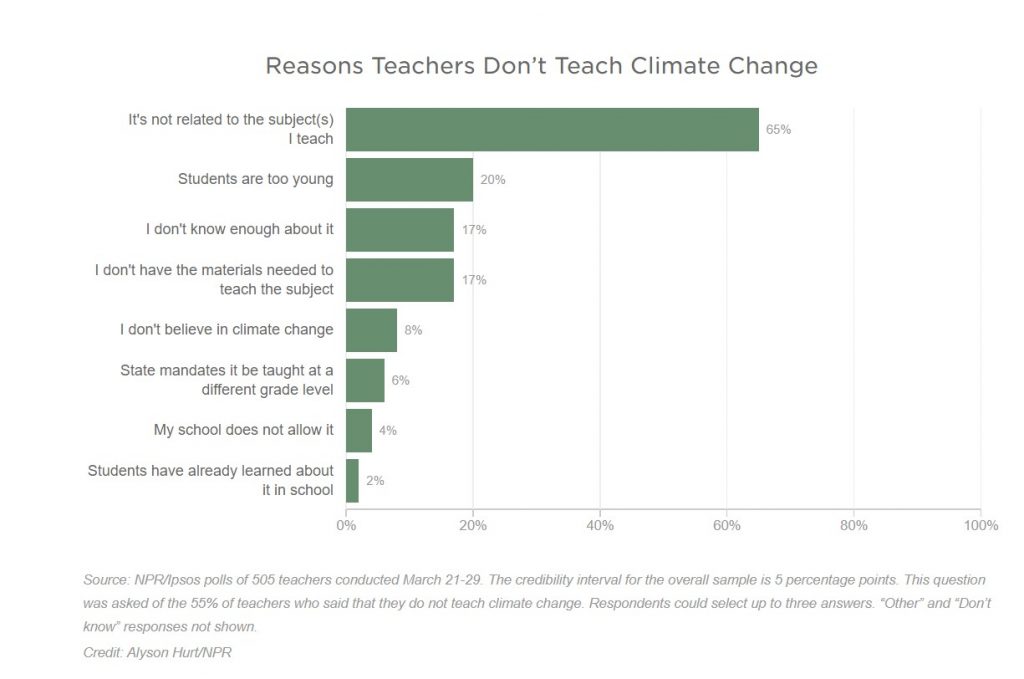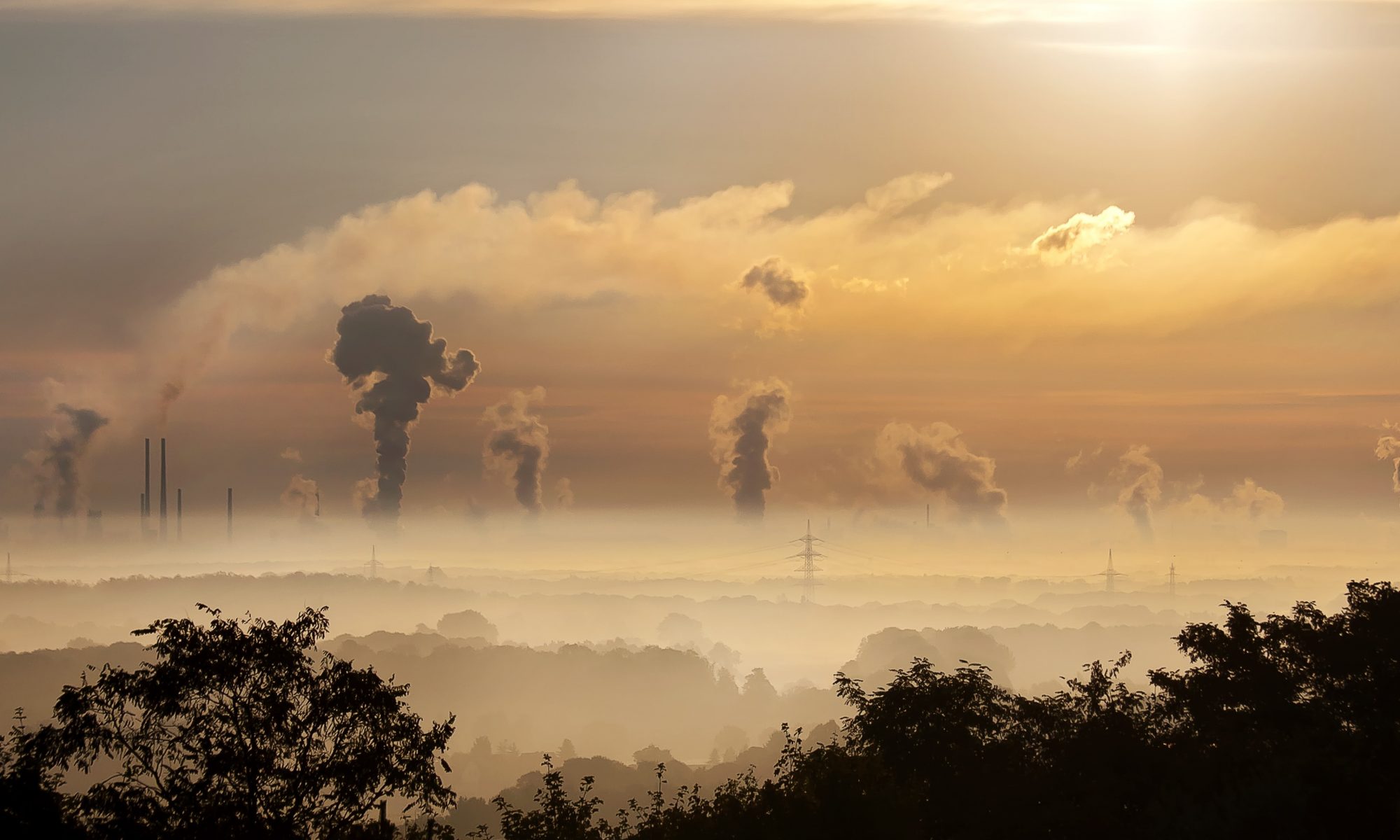Dr Silke Neumann, Head of Biology at WHS, looks at what we as a school community and as teachers could accomplish to limit our contributions to pollution and climate change.
Looking at the scientific literature, watching TV, just reading the paper often leaves me disheartened these days. For example, last week’s ‘bleak’ UN annual report calls for massive and immediate cuts in carbon output. The report said that to remain within the 2 ⁰C limit, cuts to greenhouse gases must triple compared with current plans over the next 12 years. Cuts would have to increase fivefold to keep warming to 1.5 ⁰C, the level above which damage to human livelihoods and wildlife would rapidly escalate [1].
In ‘Six Degrees’, Mark Lynas outlines what we can expect to happen to our planet at each progressive 1 ⁰C temperature rise and how we will end up with mass extinction, unless we act now [2]. However, being the ‘glass half full person’ that I am, this all leaves me geared up and ready to fight, although picking my battles. It is not my intention to discuss what politicians, government and multinational corporations are or aren’t doing, nor to depress you by reading this blog but to hopefully leaving you rearing for action.
What can we do here at WHS to avoid and or offset carbon emissions?
Estimate your own carbon footprint

Urban areas are, for obvious reasons, the main contributor to our CO2 concentration in the atmosphere [3]. It is a very sobering experience to have a go at the carbon footprint calculator. I suggest you do it a few times, leaving each long distance flight in as you go along so you can see its impact. Try it out on this link: https://footprint.wwf.org.uk/#/
Add this book [4] to your Christmas wish list or get it from the WHS Library, much carbon friendlier than buying by the way. It is full of astonishing information, such an eye-opener with too much to mention here. But just a few examples, did you know that:
 – a text message, a web search and an email all have a carbon footprint;
– a text message, a web search and an email all have a carbon footprint;
-watching TV with friends is much more efficient, because one hour of TV per day emits as much CO2 as a 45-mile drive in an average car;
– a heart bypass operation’s CO2 contribution is equivalent to two return flights from London to Madrid;
Scale down food wastage and eat less meat
The University of St Andrews has reduced using food trays after a think tank conducting research at the university found that students were the worst offenders of any age group when it came to waste at meal times, throwing away on average food worth £273 each year. When food waste ends up in landfill it rots and emits methane, which is more harmful to the climate in the short term than carbon dioxide [5].
According to a University of Oxford study, the environmental impact of different foods varies hugely. Their findings showed that meat and other animal products are responsible for more than half of food-related greenhouse gas emissions, despite providing only a fifth of the calories we eat and drink. Beef and lamb were found to have by far the most damaging effect on the environment [6]. Try the climate change food indicator https://www.bbc.co.uk/news/science-environment-46459714; another eye-opening experience to see what small changes we can make to have a huge impact.
Scale down single-use plastic
David Attenborough – my absolute hero by the way – has raised our awareness of the impact of plastic pollution so brilliantly with his Blue Planet 2 series. It is so detrimental to life in oceans and this life helps to keep the atmospheric CO2 tolerable by sequestering carbon in ocean sediments which then form carbonate rocks such as chalk or limestone, less oceanic life, less carbon sequestering. I need to say no more. WHS will phase out the use of all single-use-plastic, please do not bring any to school anymore.
Scale down driving or being driven to school
Air quality and carbon emissions go hand in hand. Living within 50 metres of a busy road stunts children’s lung growth by up to 14 per cent, a new report by Kings College London reveals [7]. Transport now accounts for 26 % the UK’s greenhouse gas emissions, compared to 25 % coming from energy supplies [8] and according to a study in 2018, we are not alone: Transport is Europe’s biggest source of CO2, responsible for the emission of over a quarter of all greenhouse gases. The main sources were petrol and diesel cars and trucks. Did you know that an idling vehicle emits 20 times more pollution than one travelling 32 mph [9]?
Scale up growing perennial plants
Plant trees, donate money to planting trees, join a charity replanting our rainforests around the globe are just some examples locking away CO2 from the atmosphere. Closer to home, a simple hedge around school could halve pollution levels. According to an article published by The Lancet this month, trees in towns substantially increase life expectancy, reducing stress and lowering the risk of death from heart disease, cancer and dementia [10]. The Woodland Trust has just held its UK’s largest mass tree-planting event, you can still join in. Teachers are planning an action research project into the effect plants in classrooms on well-being during next term as a central aim of the school to be more aware of the environment we all live in.
Scale up teaching and learning about human impact on the environment
As teachers, we have an enormous opportunity and responsibility to empower the young people we are educating. An American poll revealed that most teachers do not address climate change as they feel it is not related to their subject. This raises the question, ‘Where does climate change belong in the curriculum’, surely not just STEAM and Geography [11]. Let’s work on this together to find a meaningful way on how to incorporate climate change into our subjects, see below for some examples. We could just share a personal experience, show a Blue Planet clip, assign a novel, a co –curricular project in enrichment, or lead an environmental issues club, I am sure there are many more ideas out there. As for any other context, the most effective teachers are full of enthusiasm, expertise, empathy, have the ability to empower and are enterprising [12].

Nick Sharman, Head of Design and Technology here at WHS, has suggested that we could purchase a plastic recycler [13], besides being of obvious benefit, I can imagine our girls would come up with fabulous ideas on how to make useful products from these recycled plastics. Ms Lindon is organising an eco-poetry competition event and we recently held an environment sing-along with A Cappella in a Friday Jammin’ session to join with other schools in making a stand against pollution. In addition, our classicists have produced an engaging quiz, linking their subject the environment. I encourage us all to unite and channel this great potential we have as a teaching and learning community into looking after our environment, our climate and our carbon foot print together with the young people we teach here at WHS. The school and its leadership team are putting a huge emphasis on tackling climate change – please watch this space – as it is a big deal, and not all the science is black and white, but we can do something about it. Let’s get to it.
References:
[2] Lynas, M., Sixth Degrees, our future on a hotter planet, London, Harper Perennial, 2008
[3] https://naei.beis.gov.uk/data/map-uk-das?pollutant_id=2
[4] Berners-Lee, M., How bad are bananas? The carbon footprint of everything, 2010
[5] https://www.thetimes.co.uk/article/ban-on-canteen-trays-to-cut-waste-2h8bxjhq7
[6] https://ora.ox.ac.uk/objects/uuid:b0b53649-5e93-4415-bf07-6b0b1227172f
[8] https://www.kcl.ac.uk/news/living-near-a-busy-road-can-stunt-childrens-lung-growth
[10]https://www.thetimes.co.uk/article/the-plane-truth-is-we-need-more-trees-l593x75n7
[11] https://www.npr.org/2019/04/25/716359470/eight-ways-to-teach-climate-change-in-almost-any-classroom?t=1575046395890&t=1575278578792
[12] Bentley-Davies, C., How to be an amazing Teacher, Bancyfelin, Crown House Publishing Ltd, 2010.

